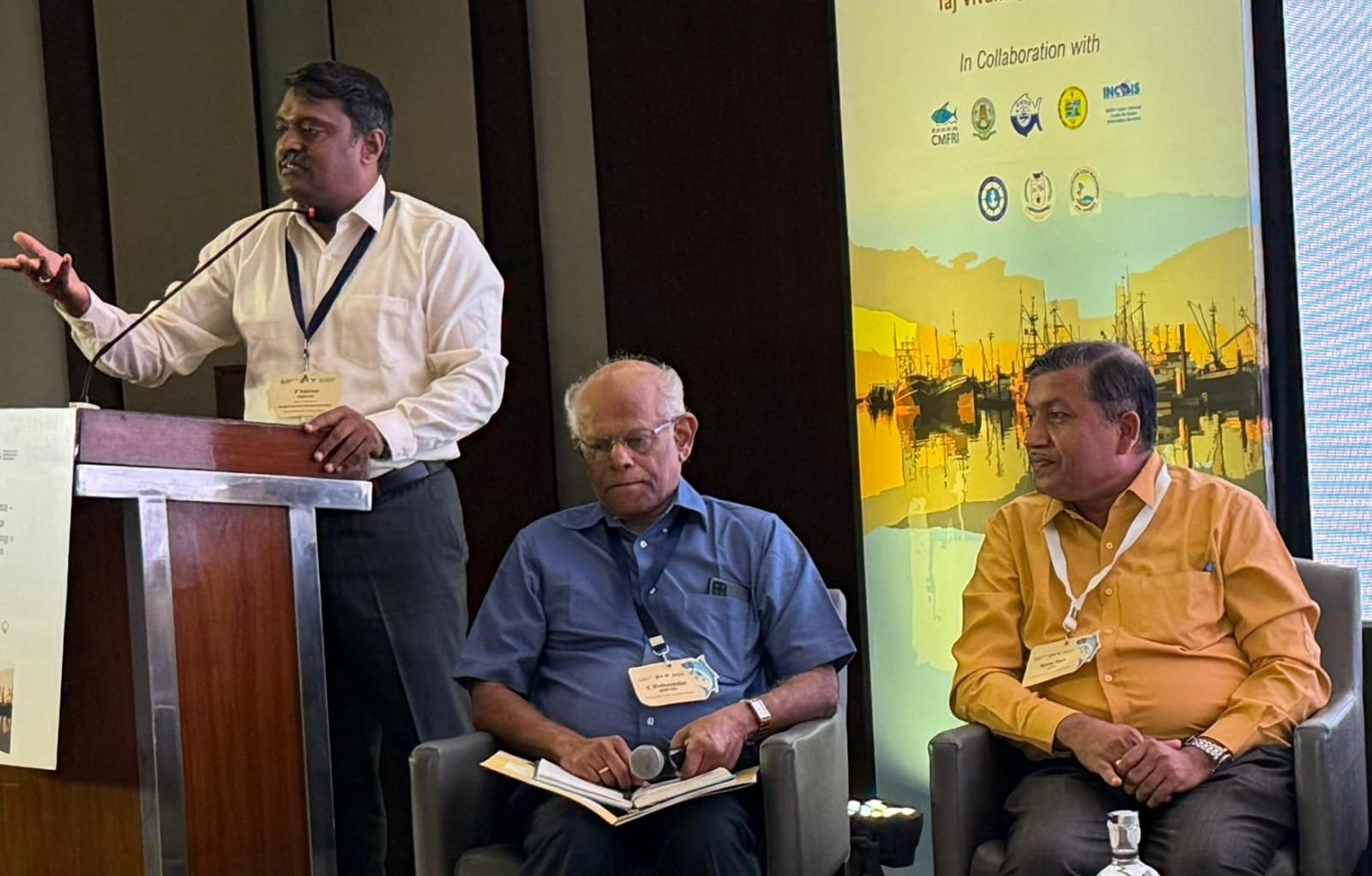Sunday, 22 February 2026

Experts propose value chain strengthening, multi-purpose app and climate resilient approach to boost India’s marine fisheries sector
From multi-purpose apps to digitally supported value chain revamp, marine experts have proposed a range of innovative solutions to boost India’s marine fisheries sector in view of dwindling catches and decreased fisher income.
One such solution, the ‘shore-to-door’ model, is projected to boost fishers’ income by 25-30 per cent. This model aims to create a more direct link between fishers and consumers, bypassing intermediaries and increasing the share of profits for those who catch the fish. The experts presented their views at a national workshop jointly organised by Bay of Bengal Programme Inter-Governmental Organisation (BOBP-IGO) and Environmental Defense Fund (EDF).
According to them, a significant portion of the marine catch—20 to 30 per cent—is wasted after harvest due to inefficiencies in the supply chain. As a result, fishers earn only a part of what they catch.
The workshop discussed a concept called FRESH (Fair Price, Fresh Seafood, Digital First) to tackle these inefficiencies. This model leverages ONDC-linked platforms, IoT-enabled cold chains, and QR-based traceability, ensuring seafood reaches households within 24 hours of landing. “This also ensures consumers get fresher, safer and traceable seafood at fair prices”, said B Bharath Kumar, CEO of ZeroCode.
In a bid to avoid confusion and the need for multiple apps, the BOBP proposed a single, multi-purpose mobile application in the Bay of Bengal countries. This app is designed to streamline various tasks for fishers, including catch documentation, enhancing their market access, providing timely weather alerts, and connecting them to insurance schemes.
BOBP and EDF plan to pilot this initiative and eventually expand across Bay of Bengal countries in collaboration with national agencies and fisher collectives.
Presenting the proposal, BOBP Director Dr P Krishnan emphasized that reliable and timely catch data are crucial for effective stock assessment and management. “Current systems in India often underestimate artisanal catches and involve manual processes that hinder traceability, leading to inefficiencies”, he said.
The proposed initiative seeks to encourage voluntary reporting by fishers through incentives such as tailor-made insurance schemes and other welfare measures.
He pointed out that the initiative would also serve as a bridge between traditional fishers and policymakers by creating a fisher-led data pipeline, offering near-real-time insights into stock assessment, and supporting evidence-based decision-making in multispecies, multi-gear fisheries.
Climate Change
Highlighting the adverse impacts of climate change on marine fisheries, Dr Jacob Eurich, Scientist with EDF stressed the need to focus on resilient fisheries. “Climate change is causing species to shift their habitats and changing productivity rates. This will, in turn, affect the mix and abundance of species, ultimately impacting the potential for fishery catches”, he said.
“Developing fisheries for species that are less sensitive to climate change can help communities prepare for these shifts and become more resilient to their effects. Understanding the health of fish stocks and the broader ecosystem is crucial, especially in data-limited fisheries. Better data can help us adapt more effectively”, he added.
The workshop also emphasised the need for collaborative efforts to curb juvenile fishing that causes economic loss to the marine fisheries sector.